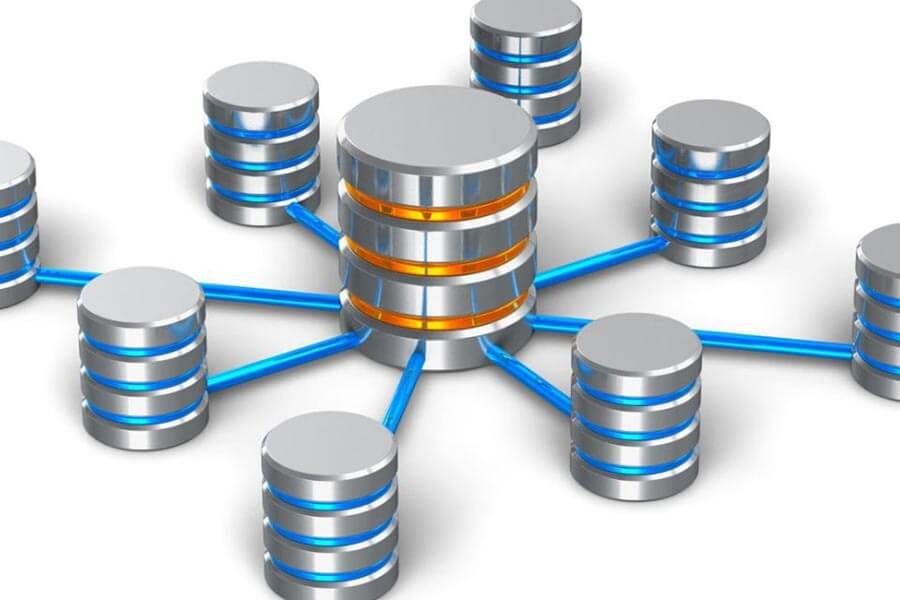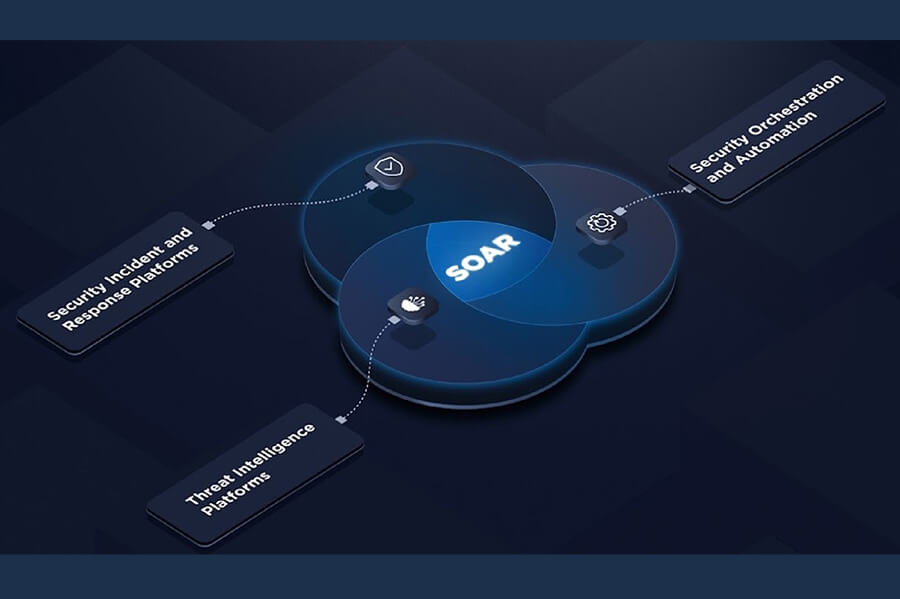In today’s rapidly evolving data landscape, traditional relational databases struggle to keep pace with large-scale, complex, and diverse data demands. NoSQL databases have emerged as powerful alternatives, offering flexibility, scalability, and speed. These databases are quickly becoming essential tools for handling the vast amounts of unstructured and structured data that modern applications require.
Understanding NoSQL Databases: A Paradigm Shift in Data Storage
Data storage has radically transformed, and NoSQL databases are at the forefront of this change. Unlike their relational counterparts, NoSQL databases are designed to handle large volumes of diverse and unstructured data, challenging traditional SQL systems that rely on rigid schemas. NoSQL databases have revolutionized how businesses manage and process data by offering greater flexibility and scalability.
Evolution from Traditional Databases
Old SQL databases need help with today’s big data and complex data types. NoSQL databases are a new solution designed to manage large amounts of data efficiently.
Core Principles of NoSQL Architecture
NoSQL databases focus on “scale-out” instead of “scale-up.” They use a distributed system to handle large amounts of data, making them fast and reliable for big applications.
The Rise of Non-Relational Databases
More businesses want flexible data storage, leading to NoSQL databases. These databases are great for unstructured data and fast responses, and as data needs grow, so will their use.
Key Differences Between SQL and NoSQL Systems
SQL and NoSQL databases differ fundamentally in their data models, query languages, and consistency models:
- Data Models: SQL databases use a fixed schema and store data in rows and columns within tables, while NoSQL databases use flexible models such as key-value pairs, JSON documents, or graph structures.
- Query Language: SQL databases use SQL for querying data, while NoSQL databases typically use custom APIs or query languages tailored to their data models.
- Consistency vs. Availability: SQL databases prioritize consistency (ACID properties), ensuring data accuracy and integrity. NoSQL databases prioritize availability and partition tolerance (CAP theorem), offering high availability and fault tolerance at the expense of perfect consistency.
The choice between SQL and NoSQL depends on the application’s specific needs, including data size, structure, and real-time responsiveness.
Types of NoSQL Databases and Their Use Cases
NoSQL databases come in several varieties, each suited to different data types and applications. Let’s explore the four main categories:
- Document Stores (e.g., MongoDB, Couchbase): Store data as flexible documents (often JSON), making them ideal for managing unstructured data. They’re commonly used in content management systems, mobile apps, and web applications that require dynamic schemas.
- Key-Value Stores (e.g., Redis, Memcached): Store data as key-value pairs, offering fast data retrieval. These databases are excellent for caching, session management, and real-time analytics.
- Column-Family Stores (e.g., Apache Cassandra, HBase): Organize data into columns instead of rows, ideal for handling large datasets, time series data, or IoT data that need to be written and read in bulk.
- Graph Databases (e.g., Neo4j, Amazon Neptune): Represent data as nodes and edges, making them perfect for applications that need to model complex relationships, such as social networks, recommendation engines, or fraud detection systems.
Scalability Benefits in Modern Data Environments
In today’s fast-paced business world, data overgrows. It is crucial to scale database solutions efficiently. NoSQL databases stand out here, offering unmatched scalability benefits. They help organizations keep up with their growing data needs.
NoSQL databases scale out, unlike traditional databases that scale up. They spread data and processing across many servers, making a business’s growth easy and affordable.
This scalability is a big plus for fast-growing businesses. NoSQL databases can quickly adapt to increased data and user needs, ensuring companies stay competitive and deliver top-notch services.
Data Flexibility and Schema-less Architecture
NoSQL databases have a unique design that offers unmatched flexibility. This is a big plus compared to traditional SQL systems. They don’t have fixed schemas, so users can easily adjust to changing data needs.
Dynamic Schema Advantages
NoSQL’s design is great for handling dynamic schemas. It doesn’t stick to one data model. This lets organizations quickly change to meet new business needs.
This flexibility speeds up and makes development more agile. It also helps teams work better and gets products to market sooner.
Handling Unstructured Data
NoSQL databases are also top-notch at dealing with unstructured data. This includes everything from social media to sensor data. They can handle many data types without the usual relational model limits.
This flexibility lets companies find valuable insights in different data sources. It opens up new advantages and helps make better decisions.
Adaptation to Changing Business Needs
Businesses today need to adapt fast. NoSQL’s design makes it easy to change with the times. It doesn’t require complex schema updates.
This benefit means businesses can stay quick and responsive. They can meet market demands without a hitch.
Performance Optimization and Speed Advantages
NoSQL databases are great at handling big data. They are fast and efficient, beating traditional databases in many ways.
NoSQL databases use in-memory caching to speed up data access. This means they can get data quickly, which is key for fast apps. For example, IoT systems or e-commerce sites need data fast.
NoSQL databases also scale well. They can grow with your data needs because they process data in parallel, making tasks faster.
NoSQL databases also cut down on join operations. These can slow down traditional databases. NoSQL’s flexible design means less need for joining, making data access quicker.
NoSQL databases are perfect for today’s fast-paced data world. They offer quick data access and processing, helping businesses stay ahead.
Cost Efficiency and Resource Management
NoSQL databases are known for being cost-efficient. They use a scale-out architecture to save money compared to traditional databases. NoSQL databases run on common hardware, not expensive, special servers, which cuts the initial cost.
Infrastructure Savings
NoSQL databases, like document stores and key-value stores, use cheap hardware. This helps avoid the high costs of special database servers. The lower hardware costs and ability to grow horizontally lead to big savings.
Operational Cost Benefits
NoSQL databases also save money over time. They are easy to manage, which lowers ongoing costs. Their flexible design means less time spent on database setup and upkeep, letting companies focus on more important tasks.
Scaling Economics
NoSQL databases’ ability to scale as data grows is a big plus. Adding more nodes to a cluster is cheaper than buying a bigger, pricier system, making it easier to handle growing data and processing needs without breaking the bank.
Implementation Challenges and Solutions
Starting with NoSQL databases can be tough, but the right steps can help. One big issue is keeping data consistent. As the CAP theorem shows, NoSQL systems focus more on being available and flexible than on strict data consistency. Developers must plan their data models well and use the right tools to keep data safe.
Managing the complexity of NoSQL databases is another challenge. Unlike traditional databases, these systems have many data models and patterns. This means developers need to know a lot about NoSQL and how to use it. Finding people with the right skills can be hard, especially in fast-changing data worlds.
To solve these problems, companies should invest in training their teams. This helps build a strong group of NoSQL experts. Using DevOps can also make the setup smoother by improving teamwork. Tools and frameworks that make managing NoSQL databases easier can also help greatly. The best option is simply to rely on a software outsourcing company like Coderio that specializes in this technology.
Security Considerations in NoSQL Environments
Security becomes a big deal as companies use big data and NoSQL databases. Traditional ways to keep data safe might not work anymore. Finding a balance between being flexible with data and keeping it secure is key.
Authentication Methods
NoSQL databases offer different ways to log in, from simple passwords to more secure methods. Choosing the right way to log in is important. It helps stop unauthorized access and keeps data safe in the big data world.
Data Encryption Strategies
Using strong encryption is a must for NoSQL security. Encryption at different levels can keep sensitive data safe, even if there’s a breach. It’s essential to manage encryption keys well and update strategies often to keep data private and safe.
Access Control Management
Strict access control is vital in NoSQL, where data is flexible and schema-less. Setting up clear roles, permissions, and audit logs helps manage who can see or change data, keeping big data infrastructure secure.
Best Practices for NoSQL Database Design
Designing a NoSQL database requires careful consideration of your application’s needs. It’s important to:
- Understand NoSQL Data Models: NoSQL databases offer various data models, including key-value pairs, documents, columns, and graphs. Choose the model that best suits your data and application requirements.
- Leverage Denormalization: Unlike SQL databases, NoSQL systems often use denormalization, which involves storing data redundantly to speed up read operations. This can improve performance but requires careful planning to avoid data inconsistencies.
- Implement Strong Indexing: Effective indexing is crucial for optimizing query performance. Be sure to index frequently queried data to speed up searches.
By following best practices and selecting the right type of NoSQL database for the job, businesses can unlock the full potential of their data storage and processing solutions.







